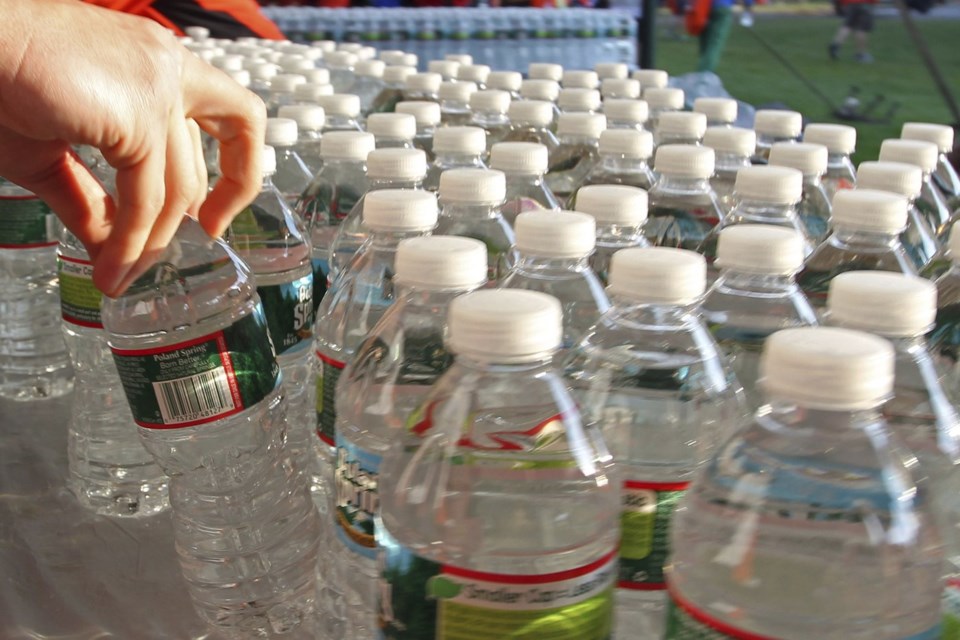MADISON, Wis. (AP) — The Wisconsin Supreme Court delivered a victory for environmentalists on Tuesday in the fight over “forever chemicals” known as PFAS.

MADISON, Wis. (AP) — The Wisconsin Supreme Court delivered a victory for environmentalists on Tuesday in the fight over “forever chemicals” known as PFAS.
The liberal-controlled court ruled that state regulators can force landowners to clean up emerging pollutants such as PFAS before they are officially designated as hazardous substances.
The 5-2 ruling is a defeat for the state’s powerful group representing businesses and manufacturers, which had argued the state couldn’t enforce regulations on substances before they were officially designated as hazardous.
It is the latest development in a yearslong battle in Wisconsin and nationally involving regulators, environmentalists, politicians and businesses over how to deal with PFAS contamination.
The PFAS problem
Cities large and small across Wisconsin, from Madison to Marinette and La Crosse to Wausau,are grappling with PFAS contamination. The U.S. Geological Survey has estimated that at least 45% of the nation’s tap water iscontaminated with PFAS.
PFAS, or perfluoroalkyl and polyfluoroalkyl substances, are a group of chemicals that have been around for decades and have now spread into the nation’s air, water and soil.
They were manufactured by companies such as 3M, Chemours and others because they were incredibly useful. They helped eggs slide across nonstick frying pans, ensured that firefighting foam suffocates flames and helped clothes withstand the rain and keep people dry.
The chemicals resist breaking down, however, which means they stay around in the environment and have a hard time breaking down in the body. There is a wide range of health harms now associated with exposure to certain PFAS, including low birth weight, cancer and liver disease.
Democratic Gov. Tony Evers and Republican legislators have been at odds over how to address the problem for years, withboth sides blaming the otherfor not earmarking more money for clean up efforts.
The Wisconsin case
The Wisconsin Supreme Court ruled in a case brought by the state’s largest business group, Wisconsin Manufacturers & Commerce, which sued the DNR in 2021 on behalf of Leather Rich, a dry cleaning business in Oconomowoc.
Leather Rich became aware of PFAS contamination in 2018 and was working on cleaning it up when the DNR posted a message online in 2019 saying it now considered PFAS chemicals a hazardous substance. The agency ordered the dry cleaner to test its groundwater for PFAS but didn’t tell the business which compounds it needed to test for or what levels would be considered dangerous.
They argued the DNR can’t force businesses to test and clean up contamination from emerging pollutants like PFAS without first designating them as hazardous substances. That process can take years and requires approval from the Legislature.
A Waukesha County judge and the state appeals courtsided with Leather Rich.
The DNR appealed, arguing that it could unilaterally force testing because state law gives the agency broad authority to protect the environment. It also argued that the lower court’s ruling would neuter the state’s “spills law,” which was designed to confront pollution.
That law, enacted about 50 years ago, requires anyone who causes, possesses or controls a hazardous substance that’s been released into the environment to clean it up.
Wisconsin Supreme Court weighs in
“Wisconsin’s Spills Law safeguards human health and the environment in real time by directly regulating parties responsible for a hazardous substance discharge,” Justice Janet Protasiewicz wrote for the majority.
No state law required the DNR to implement a rule before requiring Leather Rich to begin cleaning up the site, she wrote.
“The DNR has explicit authority to enforce a threshold for reporting the discharge of hazardous substances,” she wrote.
The court’s four liberal justices were joined by conservative Justice Brian Hagedorn in the majority. Conservative justices Annette Ziegler and Rebecca Bradley dissented.
They said the ruling allows bureaucrats to “impose rules and penalties on the governed without advance notice, oversight, or deliberation. In doing so, the majority violates three first principles fundamental to preserving the rule of law — and liberty.”
Spokespeople for the state and WMC, which brought the lawsuit, did not immediately respond to emails seeking comment.
Fight over PFAS regulation
Since the lawsuit was filed, additional state and federal regulations of PFAS have been put in place.
Federal regulatorsplaced the first-ever national standardson PFAS in drinking water last year, but the Trump administration said in May that it planned toweaken those limits.
The state has imposed less restrictive limits on PFAS in surface and drinking water, defined as piped water delivered through public systems and noncommunity systems that serve places such as factories, schools and hotels.
But it has not implemented PFAS standards for groundwater, the source of drinking water for about two-thirds of Wisconsin residents. The agencystopped effortsto draft them in 2023 after determining that compliance would be too expensive.
Scott Bauer And Todd Richmond, The Associated Press